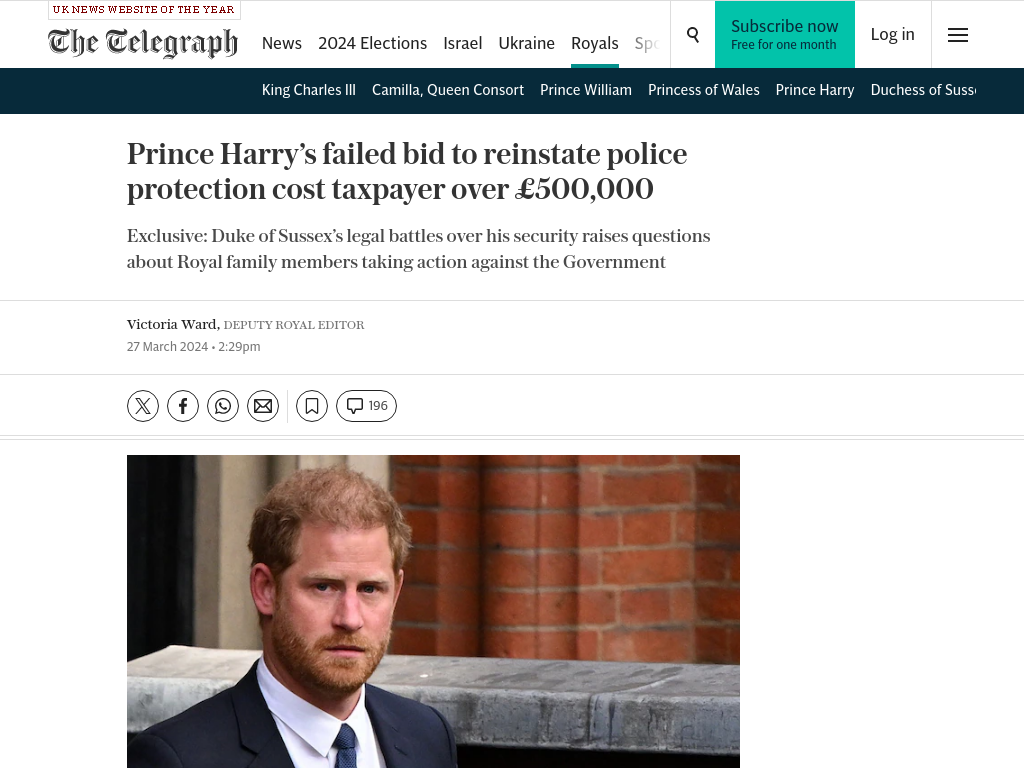The decision for each claim:
Ground 6A (Failure to follow policy without good reason): the judge concludes that RAVEC did deviate from their own practices but for good reason and that this deviation was beneficial for Harry.
Also the 'category' discussion was quashed. These are not official categories but only used as a way to make sure the court understood who were part of the RAVEC cohort.
The judge doubles down on the argument that RAVEC did not take impact sufficiently into consideration; using the word 'bizarre' if they wouldn't do that.
Ground 6B (irrationality): the judge concludes that Harry not remaining in the RAVEC cohort is a rational decision and the 'bespoke process' created for Harry is legally sound.
The judge seemed to be a bit impatient with Harry at this point: Harry is entitled to his views but that does not negate the expert opinion of RAVEC.
As expected, dangers posed due to recklessness by paparazzi are not part of RAVEC's security considerations - even though it is understandable that this is of great concern to Harry. For security arrangements 'intent' is a relevant part of the considerations:
Grounds 4, 5 and 6C (transparency and procedural unfairness): this mainly deals with the question about whether the meetings with H&M's private secretary outline their future plans prior to the decision of 28 Feb being made were sufficient or that, as Harry claims, he himself should have been personally involved in discussions. The judge considers his representation, not only by their private secretary but also by other members of the royal household who were all well aware of how RAVEC works, sufficient.
Grounds 2 and 3 (failure to take account of material considerations and irrationality): here the defendants submitted that the claims were out of time and the judge agrees. The comparison to other cases that Harry and his representatives make fail. Nonetheless, as they are linked to other grounds he still considers them.
A different treatment after Harry and Meghan decided to leave as senior working members of the royal family was rational; it also acknowledges that RAVEC still accepted that their position was not like other private citizens:
Also the offer to pay for security is discussed at this point:
The legal teams apparently received a draft judgment and Harry's team tried to convince the judge one more time of his case. However, the response was in line with the draft judgment - and explains once again the weaknesses of Harry's case :
Final decision:
Source:
https://www.judiciary.uk/wp-content...-7-Dec-23-Redacted-Open-Approved-Judgment.pdf
THE END






